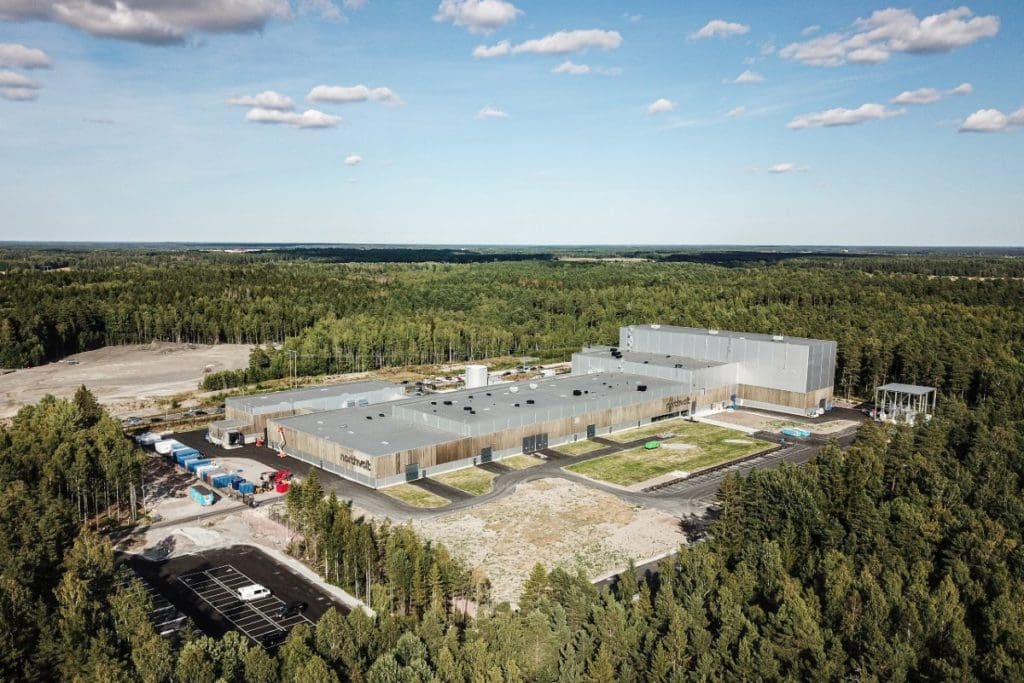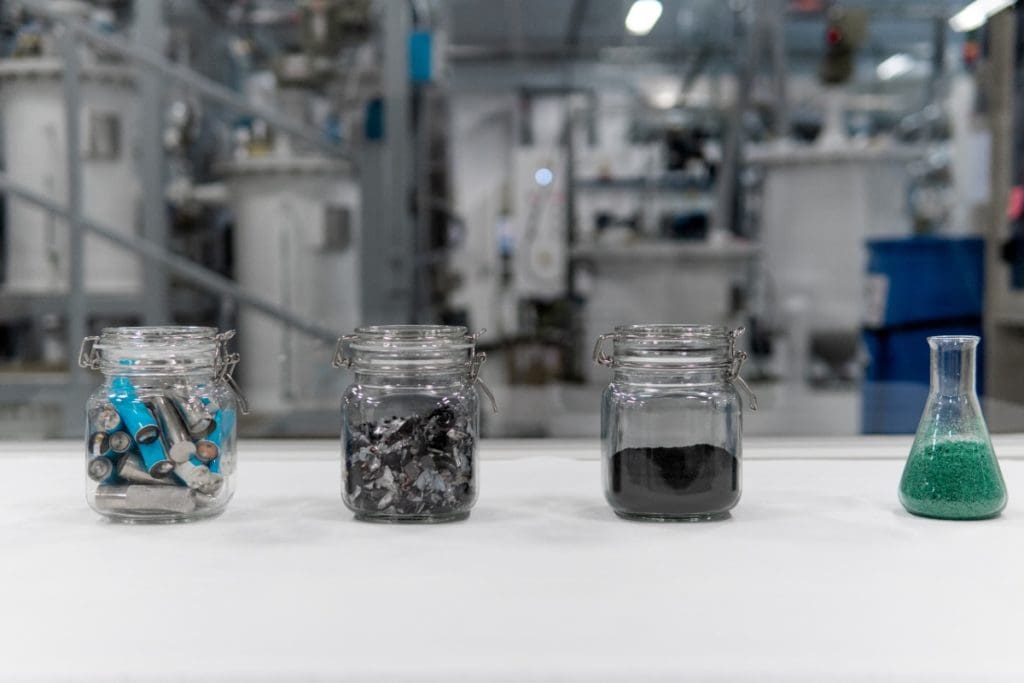World’s First Fully Recycled Lithium Battery Cell

Västerås, Sweden
Swedish battery manufacturer Northvolt has announced it has produced the first fully recycled lithium-ion battery cell, in a major breakthrough towards the sustainability of micromobility and other transport.
Northvolt’s recycling program, Revolt, last month produced the cell with 100% recycled nickel, manganese and cobalt, which had been recovered from battery waste using a low-energy treatment to isolate the metals and separate them from impurities.
All the recycling and production processes were completed at a single site, Northvolt Labs in the Swedish city of Västerås,
Northvolt says now it has “proven the validity and efficiency” of its recycling process, it is focusing on scaling up recycling capacities to fulfil its aim of producing cells with 50% recycled material by 2030.
Battery recycling has been an increasingly prominent issue for the cycling industry, with the growth of e-bike sales and mounting pressure for more sustainable manufacturing and operations.
Proposed European Laws for Recycling
Late last year, the European Commission proposed new legislation for all batteries sold in the EU, including the requirement for minimum levels of recycling and responsible sourcing of materials, to achieve carbon neutrality by 2050.
The commission said in a statement: “To significantly improve the collection and recycling of portable batteries, the current figure of 45% collection rate should rise to 65% in 2025 and 70% in 2030 so that the materials of batteries we use at home are not lost for the economy.
“Other batteries – industrial, automotive or electric vehicle ones – have to be collected in full. All collected batteries have to be recycled and high levels of recovery have to be achieved, in particular of valuable materials such as cobalt, lithium, nickel and lead.
“From 1 July 2024, only rechargeable industrial and electric vehicles batteries for which a carbon footprint declaration has been established, can be placed on the market.”
Northvolt has announced it aims to expand its recycling plant capacity to enable the recycling of 125,000 tons of batteries per year, amounting to approximately 30 gigawatt hours of battery production per year
Its Chief Environmental Officer and head of Revolt, Emma Nehrenheim, said: “What we have shown here is a clear pathway to closing the loop on batteries and that there exists a sustainable, environmentally-preferable alternative to conventional mining in order to source raw materials for battery production.

“The recycling process can recover up to 95% of the metals in a battery to a level of purity on par with fresh virgin material. What we need now is to scale-up recycling capacities in anticipation of future volumes of batteries requiring recycling.”
“As the electric vehicle revolution gains speed, we should be mindful that some 250,000 tons of batteries will reach their end-of-life in Europe by 2030.
“A commitment to circularity will not only significantly reduce the environmental impacts of the battery industry but also contribute to our vision to set a new benchmark for sustainability in manufacturing.”
In October, Northvolt signed an agreement with Swedish start-up Cinis Fertilizer to supply sodium sulfate salt – a by-product of battery manufacturing – to help produce commercial fertiliser with a CO2 footprint about 75% lower than traditional fertilisers.
Under the agreement, Northvolt will provide 200,000 tons of sodium sulphate annually.
Ms Nehrenheim said the manufacturing technology the company had developed enabled Northvolt to retain and repurpose a valuable product that would otherwise be considered waste and is typically flushed out into the environment.
